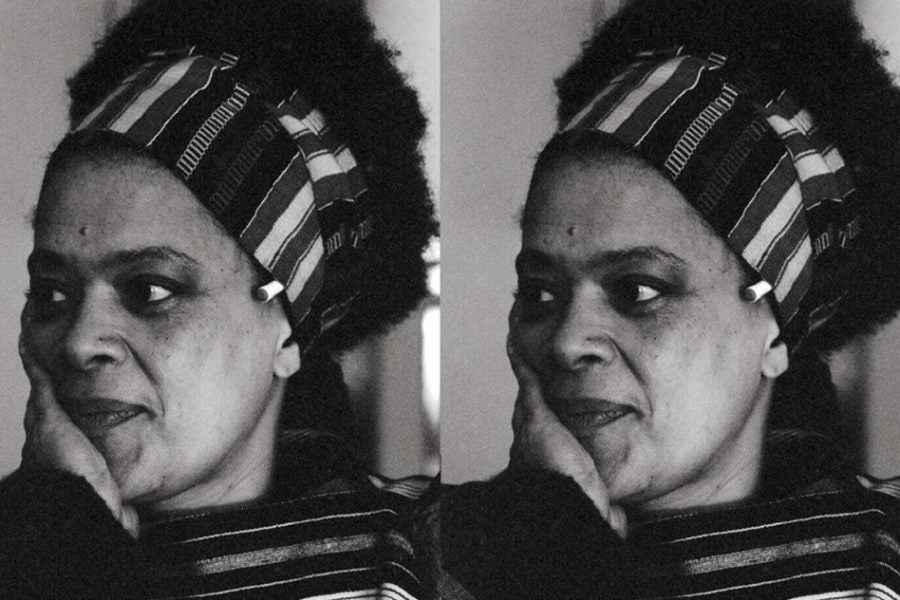
September is Sickle Cell Awareness Month — 30 days of raising awareness for a global health condition that affects millions of people. This annual observance is an opportunity to increase public knowledge and understanding of sickle cell disease worldwide.
According to the World Health Organization (WHO), 6.4 million people live with sickle cell disease globally, with the sickle cell gene primarily affecting people of African descent.
Sickle cell is a life-threatening, genetically inherited blood disease that causes a disruption in blood flow to major organs like the brain, liver, heart, and kidneys. People with SCD begin experiencing symptoms in early childhood, dealing with serious health complications like infection, stroke, avascular necrosis, and chronic pain as they age into adulthood.
As awareness of sickle cell increases, there is an inherent need to erase the health-related stigmatization of this genetic condition around the world. One common misconception is that people living with sickle cell disease are unmotivated and unable to maintain a full-time job given their health limitations. Research has shown that SCD can impact the individual’s mental (anxiety) and physical health (fatigue) significantly, but many patients have found a way to thrive, even when their complex chronic illness tries to disrupt their career.
According to the Centers for Disease Control (CDC), six in 10 adults have a chronic disease. Each day, they are tasked with achieving a sense of balance in self-managing a chronic illness while living a meaningful life. Presently, stem cell or bone marrow transplant is the only known cure for sickle cell disease, but this is only possible for a limited number of affected individuals who have suitable donors. As a clinical trial participant, I have benefitted from a curative therapy (i.e. hematopoietic stem cell transplantation), but this advanced treatment option is not a universal cure that is available to patients at home or abroad. Prior to transplant, I worked in corporate America, providing strategic media counsel and overseeing campaign strategy for brands like Purina, Unilever, and Tyson Foods. A few months in, the stress of the job took a significant toll on my health and it became unsustainable for me to continue. My own journey to entrepreneurship came out of trying to balance my sickle cell diagnosis while I worked at a top-tier PR firm.
That being said, living with sickle cell disease can be challenging but it doesn’t have to stop you from having a fulfilling career. Chris Abdullahi is a project manager at CNN International and the Founder of The Sound of Sickle, a community initiative set up to educate and raise awareness for sickle cell disease through blood donation support in the UK. Though it has not been easy, Abdullahi has been able to balance his health and work commitments.

“What has really helped me is being honest and transparent with my co-workers so they understand what I’m going through,” he tells ESSENCE. “I approach work with this mindset of ‘I can only do what I can do’ and this helps to reduce stress or at least change my perception of stress. I try to remind myself daily that if it’s not within my capabilities, I’m not going to worry myself into a crisis because it simply doesn’t help anyone.”
A product marketing manager at Meta and a patient ambassador for AllStripes, a research platform dedicated to unlocking new treatments for people with rare diseases, Ade Adeyokunnu understands the nuances of managing the expectations of the company and those of your manager while trying to take care of your health.
“It is a constant tug of war. Finding work-life balance can be quite elusive with a chronic illness, especially in the tech industry because I typically have to push through pain, fatigue, and mental exhaustion,” she says. “I try as much as possible to listen to my body and take a day off when I need to recharge.”
Simone Day is a genomic technologist at PGDx and the founder of Crisis Care, a platform dedicated to raising awareness for sickle cell disease through genotype testing and blood donation efforts. As a healthcare worker, Day noticed that many of her colleagues understood sickle cell from a scientific point of view but failed to understand the patient’s perspective.
“Balancing my career was a tough adjustment because I was missing weeks of work due to hospitalizations. Repeating the training process and not having as much experience as my peers always made me feel ill-equipped to step into a leadership role,” she says. “More recently, I’ve found jobs that don’t require intense physical exertion in the lab.” With the success of her bone marrow transplant, Day continues to make strides in her professional career making the transition from clinical laboratory scientist to a genomic technologist.
And Jenica Leah is an award-winning author of the children’s book series My Friend Jen and one of the UK’s leading sickle cell ambassadors. As the founder of JLG Publishing, Leah helps new authors bring their stories to life and has been featured in Forbes, on the BBC, TED x Brum, BuzzFeed News, and on Al Jazeera.
Leah has experienced many career setbacks because of her sickle cell diagnosis but has adopted a two-step solution in such situations; she found a way to accept the setback and simply adapt. “From an early age, I knew I wanted to have a career working for myself or one that would offer flexibility and the opportunity to work at my own pace,” she says. “Becoming an author has allowed me to create a career that is ideal for me but there are still a number of factors that I have to consider such as including rest days into my weekly schedule, sticking to a routine, and not allowing situations to cause added stress.”
For people dealing with chronic illnesses like sickle cell, entrepreneurship may become the path that affords you flexibility and gives you unique insight into unmet needs. Sometimes setbacks can birth new business ideas or spark newfound passions. But also being open about what you’re experiencing with your co-workers and employers in order to be given certain accommodations can make a difference in taking away the pressure to push through pain in order to meet a bottom line. However those with SCD decide to move forward to balance their diagnosis with their professional aspirations, whether by working for themselves or others, it is possible to have a career without having to choose between your job and your health.







